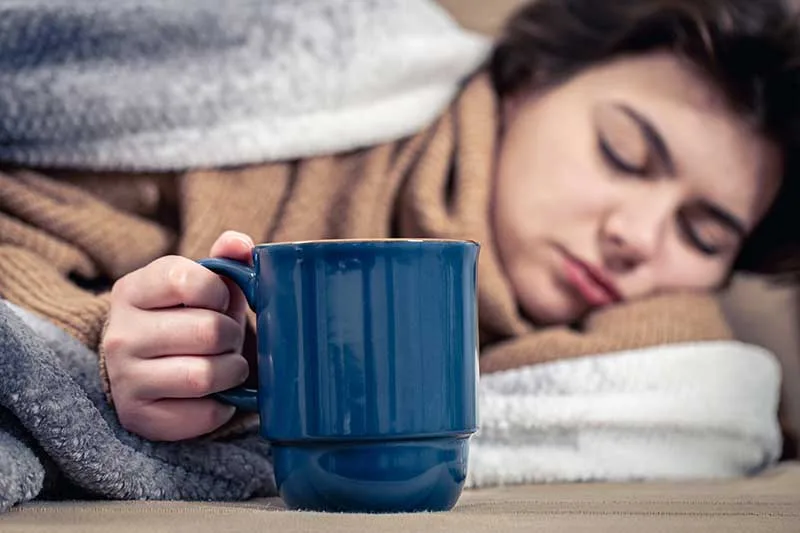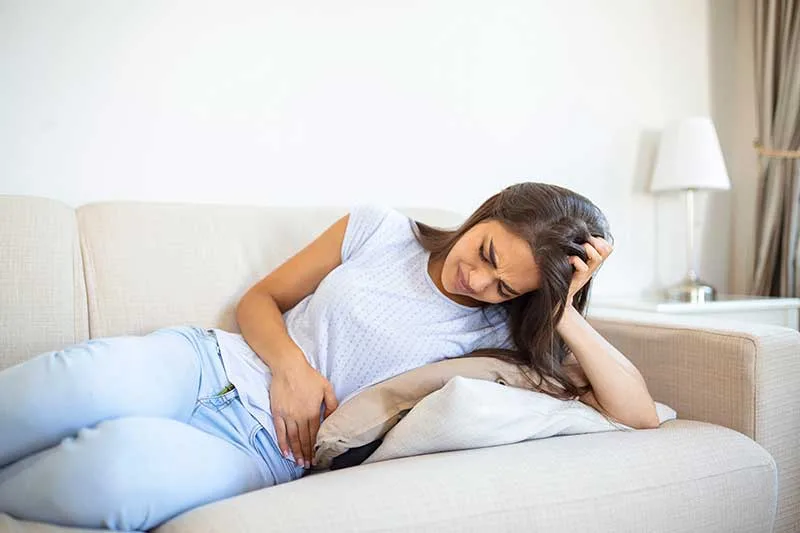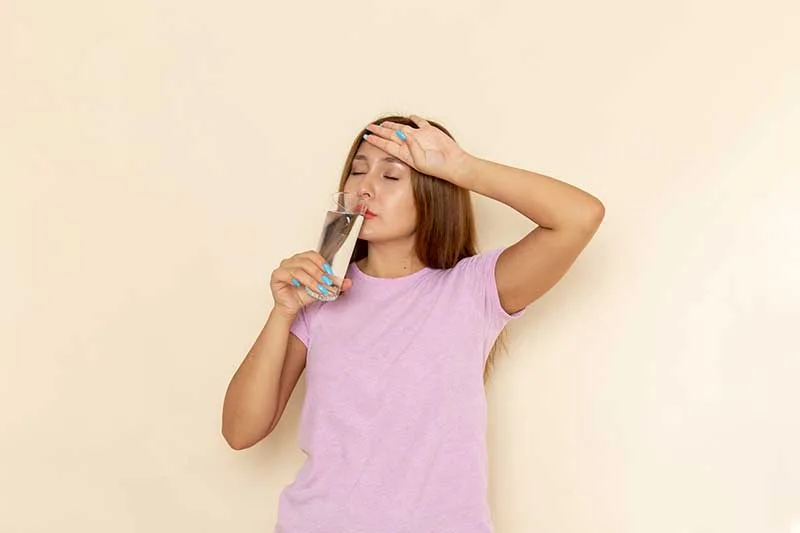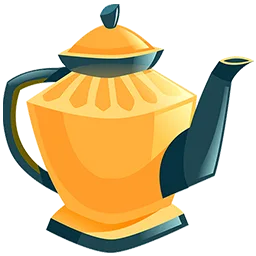When to Stop? 9 Side Effects of Drinking Too Much Herbal Tea
These days, herbal teas are becoming more and more popular, and people are drinking more herbal tea rather than other hot beverages. Herbal drinks are brewed from various plants such as chamomile, borage, peppermint, and ginger, which are commonly consumed as a healthy alternative to black tea or coffee. Despite having several flavors and many health benefits, drinking too much of any herbal tea can lead to the opposite, often uncomfortable effects. Caffeine, tannins, and active plant compounds in these drinks can affect the digestive system, nervous system, and nutrient absorption.
Let’s explore why you should maintain balance in drinking herbal teas and how excessive consumption may affect your body.
How Much Is Too Much? [Cheatsheet]
Before talking about how drinking too much herbal tea can affect your health, let’s see when to stop. The table below shows how many cups of popular herbal teas you can drink on a daily basis.
| Herbal Tea Name | Maximum Daily Intake (250 ml cups) |
| Green Tea | 3–4 cups |
| Black Tea | 3 cups |
| Chamomile Tea | 2–3 cups |
| Peppermint Tea | 3–5 cups |
| Ginger Tea | 2–3 cups |
| Lemon Verbena Tea | 2–3 cups |
| Cinnamon Tea | 1 cup |
| Licorice Root Tea | 1 cup (with extra caution) |
What Are The Side Effects of Drinking Too Much Herbal Tea?
While drinking too much herbal or black tea has several side effects, the following are more common among tea drinkers:
- Iron Deficiency
- Increased Anxiety and Stress
- Disrupting Sleep Patterns
- Nausea
- Heathburn and Acid Reflux
- Pregnancy Problems
- Caffeine Addition
- Dizziness
- Chronic Headaches
Let’s explore each and see how we can manage a balanced intake.
#1 Iron Deficiency
One of the most important and essential nutrients that our body needs is iron. Iron is essential for the production of red blood cells that carry oxygen in the body. Those with iron deficiency are considered anemic, leading to always feeling tired and weak. Several herbal teas, especially green tea, contain a large amount of a compound called tannins. Tannins are substances that can combine with iron in vegetable foods and prevent its absorption. This means that even if you have enough iron in your diet, if you drink too much, your body will not be able to absorb that iron well, potentially leading to anemia.
If you are a vegetarian, vegan, or already have anemia, it’s important to control how much you drink herbal teas. The simplest solution is to drink tea between meals and not with meals. In this way, the tannins’ impact on iron absorption will be reduced. In general, always drink herbal tea in moderation so your body can absorb and benefit from the nutrients in the food.
#2 Increased Anxiety and Stress
Herbal teas like black tea are high in caffeine, which increases energy and alertness. But if it is consumed in excess, it can increase anxiety and restlessness. Caffeine stimulates the central nervous system. If you drink a large amount in a short time, your heart rate increases, your hands tremble, and you may feel anxious and restless.
These problems are more common in people sensitive to caffeine or those suffering from stress or anxiety. In this case, you should be careful with how much caffeine is in your daily intake to prevent worsening the symptoms. The best solution is to control the consumption of caffeinated teas and, if needed, use caffeine-free teas such as chamomile, mint, or burdock.
#3 Disrupting Sleep Patterns
Good, sufficient sleep is important for your health, body, and mind. If your sleep pattern is disrupted, you will always feel tired, even after waking up. You feel you don’t have the energy or can’t concentrate to work or study. Another effect of high caffeine intake is sleep disturbance and the lack of quality sleep.

Caffeine, often high in herbal teas such as black and green tea, reduces the production of a hormone called melatonin. Melatonin is the hormone that tells the brain, “It’s time to sleep”. When the caffeine in the body increases, the melatonin level decreases, leading to difficulty falling asleep or not being able to sleep deeply. This is especially true when you drink caffeinated tea in the evening or before going to bed.
Lack of sleep leads to several problems, including weight gain, poor memory, reduced concentration, stress, and even depression. To avoid, I recommend limiting the consumption of tea and caffeinated drinks to the first hours of the day, after you wake up, and drinking decaffeinated teas in the evening or at night.
#4 Nausea
A common side effect of drinking too much tea is an upset stomach and nausea. The tannins in some herbal teas irritate the lining of the stomach. This leads to an unpleasant sensation, such as stomach pain or nausea. The severity varies from person to person. Some may experience nausea after one or two cups of tea, while others drink several cups without any problem.

If you experience stomach upset or nausea after drinking herbal teas, it is best to drink less or drink tea with food. Adding a little milk to your tea can help reduce your nausea as well. Milk and food bind to the tannins and reduce stomach irritation.
#5 Heartburn and Acid Reflux
If you easily get heartburn or acid reflux, you should be careful how much caffeinated tea you drink. The caffeine in tea and several herbal teas can relax the muscle controlling the passageway between the stomach and the esophagus. When this muscle relaxes, stomach acid easily backs up into the esophagus, causing a burning sensation or chest pain known as acid reflux.
Also, caffeine may increase stomach acid production, which adds to the problem. Of course, people’s reactions to caffeine are different, and not everyone who drinks the same tea suffers from this problem the same way or at all. If you get heartburn after drinking herbal teas, it’s best to cut back on your intake or switch to decaffeinated teas to reduce acid reflux.
#6 Pregnancy Problems
Pregnant women should be very careful about their caffeine intake. Excessive consumption of caffeine during pregnancy increases the risk of miscarriage. The American Pregnancy Association recommends that pregnant women should not consume more than 200 mg of caffeine per day. This amount is equivalent to about three cups of regular tea.

Of course, not all herbal teas contain caffeine, but some herbs are harmful during pregnancy, especially those that may cause premature labor. So, if you are pregnant, it is better to consult your doctor before drinking regular or herbal tea and make sure it’s safe to drink it during pregnancy.
#7 Caffeine Addiction
Caffeine is a stimulant that causes dependence in the body. When a person regularly drinks tea or caffeinated drinks, the body gets used to it. If caffeine intake suddenly stops, they may experience withdrawal symptoms such as headache, fatigue, irritability, and weakness.
This dependence can begin after a few days of regular consumption and become more severe over time. To avoid dependence, you should control your daily caffeine intake. If you want to reduce it, do it gradually so that the body has a chance to get used to it.
#8 Dizziness
Another side effect of drinking too much caffeine is feeling dizzy and weak. This complication most often occurs when you drink herbal tea or caffeinated tea a lot in a day or in a short time. A typical amount that may cause this problem is about 400 milligrams of caffeine per day, which is equivalent to about 6 to 12 cups of tea.
Of course, some people are more sensitive, and even lower amounts can cause dizziness. If you feel dizzy or weak after drinking tea, it is better to switch to decaffeinated teas or drink less. If you experience dizziness a lot after drinking tea, consult a doctor.
#9 Chronic Headaches
Some regular tea drinkers may get frequent headaches. The reason is the body’s dependence on caffeine. When the body gets used to a certain amount of caffeine intake over a long period, less or zero intake will cause a headache.

Even daily consumption of a small amount of caffeine (about 100 -150 mg) can lead to chronic headaches for some people. If you have frequent headaches and you suspect tea is the cause, it’s better to reduce the consumption slowly and stop for a while to see whether the headaches subside.
Conclusion
Herbal teas and herbal infusions are good for our health if consumed properly and in moderation; however, if consumed carelessly and carelessly, they can easily become a hidden enemy. Many people mistakenly think that because it is a herbal tea, it is not harmful. However, the human body has a limited capacity to tolerate certain compounds, such as caffeine or tannins. Knowing your body, being aware of the warning signs and observing moderation in consumption is the key to enjoying the benefits of these popular beverages. If you experience headaches, insomnia, or digestive problems after drinking tea, it’s time to take another look at your drinking schedule. By making informed choices, you can enjoy the pleasures of tea without putting your health at risk.
